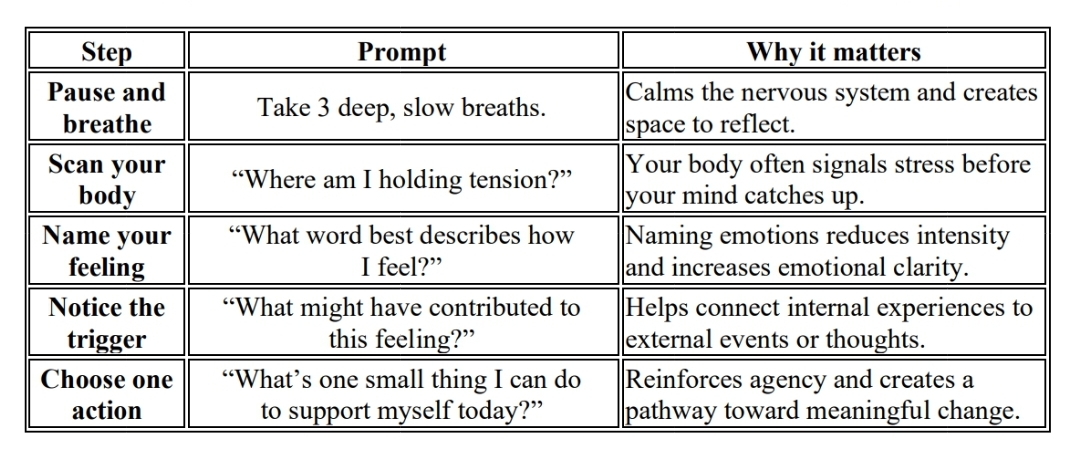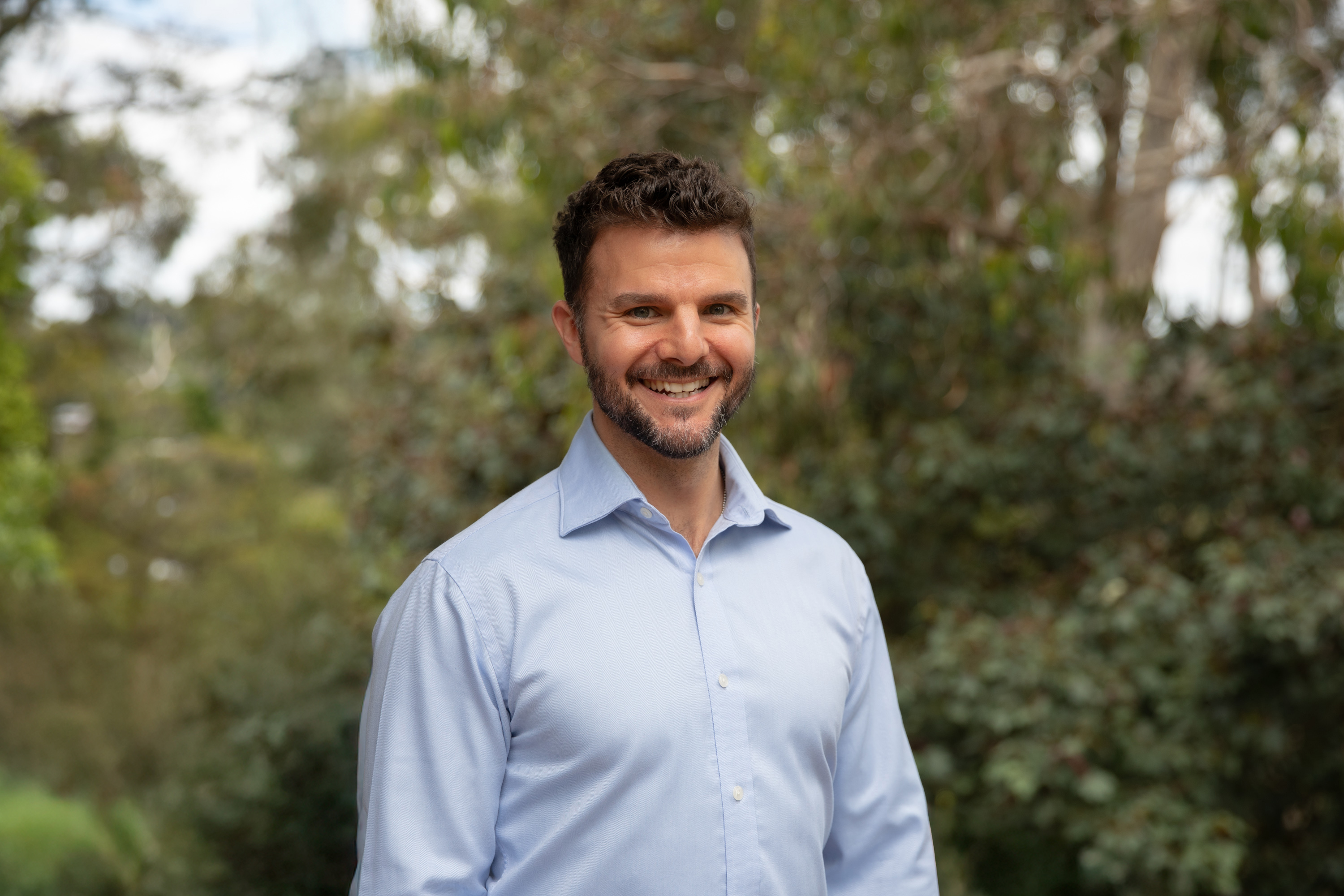This blog navigates…
A practical mental health habit that works
We’re great at checking our phones for updates, but the real value is checking-in with ourselves.
Whether you’re managing work stress, navigating relationship challenges, or simply trying to keep everything together, it’s easy to lose touch with how you’re actually feeling.
There are a few common reasons people avoid self-reflection:
1️⃣ Life gets busy
With the pace of daily life, it can feel like there’s no time to pause. But without that pause, stress builds in the background, often without us realising.
2️⃣ We weren’t taught how
Many people were raised in environments where emotional self-awareness wasn’t encouraged. As a result, we may lack the language or tools to reflect inward.
3️⃣ Fear of what might surface
Some people worry that checking in with their emotions will make things worse or open the floodgates. In reality, structured reflection can increase clarity and reduce overwhelm.
What is a check-in?
A personal check-in is a brief moment of intentional reflection. It helps you notice what’s happening internally – physically, mentally, and emotionally – so that you can respond rather than react.
Done consistently, a check-in builds self-awareness, promotes emotional regulation, and gives you more control over your day-to-day decisions and responses. We become emotionally proactive rather than emotionally reactive.
Why so many people avoid checking in with themselves
We’re often quick to check the weather forecast, or the latest news headlines, but when it comes to our own emotional state, many of us forget – or avoid – the kind of regular check-in process that can help build a foundation for emotional regulation.
Working with people from all backgrounds and walks of life who are feeling overwhelmed, stuck, or disconnected from themselves and others, presents some remarkably similar patterns. The most common themes prevalent across the board is a lack of emotional awareness; and we can’t regulate what we’re not aware of.
Therefore, one of the most effective tools I introduce early in the therapeutic process is also one of the simplest: the daily check-in.
Read on to discover what a personal check-in looks like, why it’s so effective, and how to begin using this simple tool to support your emotional wellbeing.
A simple 5-step check-in process:
This five-step practice can take as little as 2–5 minutes and can be done anytime, anywhere:

Real-world feedback
Most of those I work with report that this small practice has a big impact – usually in a very short timeframe. It often becomes the foundation for improved communication, healthier boundaries, and reduced emotional overwhelm.
Here’s how some have described the benefits:
✅ “I realised I’d been emotionally exhausted for weeks and just kept pushing through. The check-in helped me notice it and change direction.”
✅ “It gave me language to express what I was feeling, which made it easier to talk to my partner without things escalating.”
✅ “It stopped me from spiralling. I could catch myself before it got worse.”
When a check-in isn’t enough
While the daily check-in is a powerful tool, it’s not always enough on its own – especially if you’re feeling persistently anxious, burnt out, disconnected, or overwhelmed.
In these cases, working with a registered counsellor or other mental health professional can help provide:
👉 A confidential, supportive space to explore what’s going on
👉 A structured process to understand patterns and develop healthier coping strategies
👉 Practical tools tailored to your needs and life circumstances
Whether you’re an individual navigating stress, a couple seeking greater connection, or someone who just doesn’t feel like themselves lately, support is always available.
What a counselling session looks like
If you’re unsure what to expect, here’s a glimpse into how I approach sessions with those I work with:
🗣️ We start with a conversation around what’s brought you in and what you’d like to get out of our time together
🗣️ We explore the current challenges you’re facing and where they may stem from
🗣️ We identify what’s working well and what’s getting in the way
🗣️ I offer insights and practical strategies to help you move forward
🗣️ If relevant, we may also explore past experiences, but always with purpose, and only when you’re ready
You won’t be judged, labelled, or told what to do. My role is to support you in making sense of things, developing practical tools, and building a life that feels more aligned and sustainable.
Final thoughts
Sometimes the smallest changes – applied consistently – lead to the biggest shifts. A daily check-in may seem minor, but it has the power to reduce stress, improve communication, and reconnect you with what matters.
You don’t have to be in crisis to benefit from support. In fact, the earlier you reach out, the easier it is to make meaningful progress.
If you’re feeling off-track, disconnected, or unsure what the next step looks like, I offer a free introductory call to see if counselling might be the right fit for you.
“How am I doing – really?”
It’s a simple question, but the answer can change everything.

